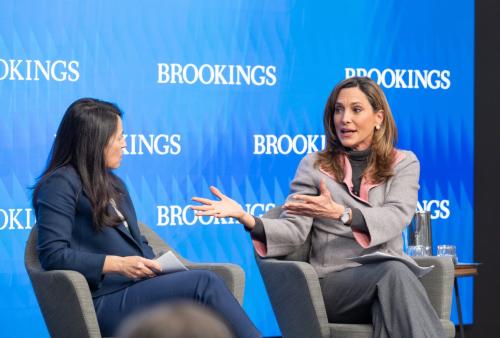President Obama’s speech on inequality may not be dinner-table talk in most American households. But it has provoked an animated debate among bloggers, wonks, and politicos.
Inequality: Big in the Wonkosphere
Paul Krugman agrees with the President that inequality is the “defining challenge of our times,” and hails the speech as a pivotal political moment, which could signal a new egalitarianism.
Neera Tanden insists that addressing income inequality is good politics for the Democrats; Jon Cowan and Jim Kessler think it would be “disastrous.”
Ezra Klein questioned whether inequality really is the “defining challenge,” asking provocatively: “Imagine you were given a choice between reducing income inequality by 50 percent and reducing unemployment by 50 percent. Which would you choose?” Klein quotes liberal economist Jared Bernstein, who has just released a paper on inequality and growth: “there is not enough concrete proof to lead objective observers to unequivocally conclude that inequality has held back growth.”
Heather Boushey argues that pre-k will be good for growth and good for inequality. Meanwhile, Scott Winship doubts even the data, suggesting that “the empirical case that rising inequality is the challenge of our time is less than compelling.”
Talking Past Each Other
Who’s right? They’re all arguing about inequality, but is the President? Here is what Obama actually said:
“There’s a dangerous and growing inequality and lack of upward mobility that has jeopardized middle-class America’s basic bargain that if you work hard, you have a chance to get ahead. I believe this is the defining challenge of our time: making sure our economy works for every working American…”
O.K., Mr. President, can I stop you right there? What is the defining challenge again? Is it “dangerous and growing inequality?” Or “lack of upward mobility?” Or “making sure our economy works for every working American?” Because those are three distinct “defining” challenges—which may or may not be causally connected, and certainly do not demand the same policy responses.
Three “Defining Challenges” Defined
-
Challenge #1: Inequality
To narrow the gap between rich and poor, tax the rich more and give it to the poor via cash benefits or tax credits.
-
Challenge #2: Immobility
To improve upward mobility, invest in pre-K, parenting programs, better teachers in poor neighborhoods, apprenticeships and better college access.
-
Challenge #3: Economy Working for All
To create an economy that securely supports more families, boost aggregate demand to create jobs, raise the minimum wage, introduce health care fit for at least the 20th century, improve family leave and invest in infrastructure and skills.
Of course, you may be worried about all three challenges, and so want to pursue policies under each heading. Fine. But don’t confuse them. And don’t make bad empirical arguments trying to link them all together. Make good political arguments for each.
Tomorrow, I’ll reveal which challenge I think is really the defining one. (Spoiler: it won’t shock you.)
The Brookings Institution is committed to quality, independence, and impact.
We are supported by a diverse array of funders. In line with our values and policies, each Brookings publication represents the sole views of its author(s).



Commentary
How Obama’s Three “Defining Challenges” Are Distorting the Inequality Debate
December 17, 2013